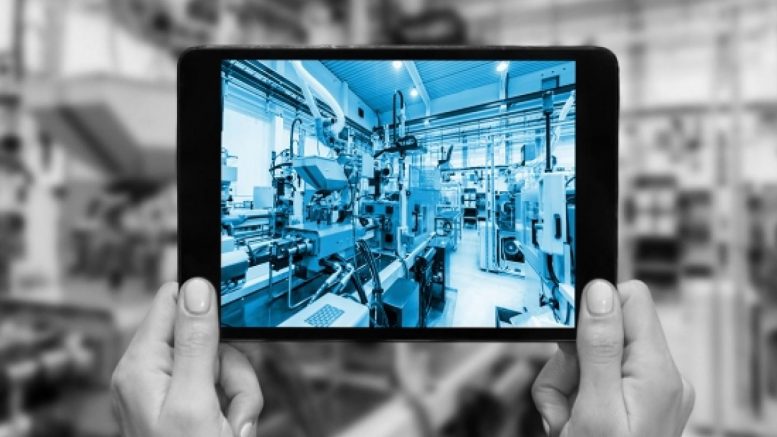The same way that the Industrial Revolution completely transformed manufacturing in the past, digital transformation is doing the same at the moment. Affected by this wave of digital changes, industrial manufacturers are implementing it to stay competitive in an already competitive market. As much as these numerous technological solutions are significantly contributing to the overall business results, some new challenges for manufacturers appeared on the horizon.
As it is with every new era, there are pros and cons of this transformative change when talking about manufacturing. What truly matters is how businesses are responding to that change.
The full potential of the blockchain technology
In 2019, combining blockchain and IoT will completely revolutionize product safety, track and traceability, maintenance and warranty management. Also, this technology has great potential to create new usage-based business models for connected, smart products. Indeed, the real power of such technology is best seen in manufacturing. Blockchain increases visibility across every manufacturing phase, from suppliers all the way to shop floor operations. More importantly, manufacturers can now meet their delivery dates, significantly improve their product quality and, consequently, sell more products. Moreover, blockchain has the ability to add more transparency to the highly complex manufacturing supply chain which this industry really needs. After all, without transparency, manufacturers will not even see any of these benefits in the short run, not to mention a longer period.
Machine learning and artificial intelligence
Besides blockchain, machine learning and artificial intelligence are also
technologies which are reshaping this industry. With AI replacing human
capacity to a
certain level, manufacturers are seeing some solutions which were never before
mentioned even in theory. These technologies are mostly being used in
production for monitoring conditions such as pressure and temperature. Also,
they analyze the data regarding these conditions to find the best solution for
manufacturing a specific product by eliminating the possibility of human error.
There’s plenty of areas where such technologies can be implemented such as
preventative maintenance of machinery, fewer system failures, more punctual
deliveries, and completed products.
More customer-centric processes
Mass customization affects so many areas in manufacturing, but its most significant impact is undoubtedly on production. How to establish flexible production processes which will allow you as a manufacturer to respond to each customer’s order? Customers want more information, and more customization and manufacturers are trying to deliver exactly that but with greater speed and flexibility when compared to before. For a product to be successful on the market, manufacturers need to fully centralize production to achieve synchronized manufacturing aspects and accommodate custom orders. After all, this is a customer-driven business world and manufacturers should even question their business from all angles to ensure more loyal customers and long-term competitive advantage.
Manufacturing moves faster
When talking about how the digitization revolutionises the manufacturing
business, it’s important to highlight the speed of the manufacturing process.
For instance, manufacturers of gates and railings will very quickly notice the
better quality these technologies are providing for their processes and
products. With robots and other automated technology, speed and efficiency are
no longer one of the main concerns for manufacturers. This is especially
crucial for companies with different locations as their employees can access
relevant data, facilitate quicker, be more collaborative and have transparent
communication among themselves. Being so connective, these technological
solutions provide real-time feedback which leads to a quicker decision-making
process and following activities.
Vulnerability to cyber threats
There
is no doubt about the damage of cyber attacks. With all vital data being stored
online, manufacturers have never been so vulnerable as they are in this digital
era. As the number of Internet-connected devices is constantly increasing, the number of cyber
threats keeps
increasing as well. These businesses have to invest in adequate solutions in
order to protect their data and also their business. They should be prepared
for potential attacks by having, at least, an anti-malware program which will
detect any suspicious activity. Of course, to be secured at the highest level,
the best thing to do is to hire a cybersecurity professional or a whole team.
Breakdowns
With such advanced technology which connects all elements of a manufacturing process in real time, there is always a possibility of a breakdown. If that happens, all these benefits mentioned above (speed, flexibility, transparency) will lose its value at that moment. For instance, if there is a fault in just one piece of the technology which is a part of that process, it automatically affects the overall productivity. The wise thing to do is to always have a backup solution and a plan for this type of situations. Also, make sure your data is always automatically stored, so you don’t lose any of it in case of a breakdown.
Unpredicted costs
Along with the breakdowns mentioned above, high usage of technology might come with a lot of unpredicted costs. However, not all costs are money related. Technology usage can result in further costs to troubleshoot problems. To fix software and hardware, manufacturers will need to contact an expert who introduced them to new costs that were probably not planned. Also, projects that poorly run can also affect the overall situation as it could reduce the trust and positive reputation of the manufacturing company.
Undoubtedly, there are a lot of benefits for manufacturers when talking about digital transformation. It directly improves efficiency and quality which leads to higher ROI. However, that doesn’t mean that the negative consequences should be overlooked. Manufacturers who are aware of both sides of this transformative change will know how to respond and provide the best solutions for their market. After all, it’s the way a business reacts to a change is important, not the change itself!



Be the first to comment on "Benefits for Manufacturers When Talking About Digital Transformation"